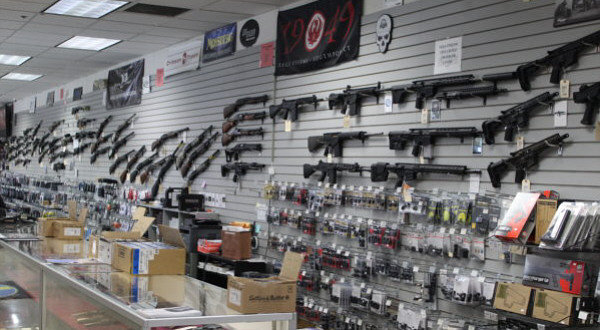

Senator Group Wants Government
Agencies to Enact 'Gun Control'

By Charles C. W. Cooke. Dec 4, 2022
Article Source
Congress did some damage to the Second Amendment last June, but anti-Second Amendment legislators did not manage to push through any of the more-draconian agenda items for which President Joe Biden (D) so often calls. Congress did not pass a ban on so-called “assault weapons.” It did not prohibit the sale or possession of standard-issue magazines. It did not allow the federal government to superintend each and every firearm transfer in the country. It did not manage to make the ownership of guns contingent upon the receipt of a federal license.
And so, having failed to achieve their grand ambitions, anti-gun legislators have changed tack: Now, they are trying to circumvent Congress completely.
Since he took office last year, Biden has often tried to get his way via executive orders and through administrative fiat. Now he is being encouraged in this behavior by members of Congress. In September of this year, 12 Senators—all Democrats—sent a letter to the Federal Trade Commission (FTC) demanding that the executive branch go after legal gun sellers. The FTC, the group insisted, must “undertake an investigation and consider regulation of the unfair and deceptive advertising practices used by the firearms industry.” Why? Because, in their view, gun manufacturers are engaged in “false and misleading safety-related claims” that “target and endanger children.” “The tobacco and e-cigarette industries,” they proposed, “are perhaps the paradigmatic example.”
Which is nonsense. The question in the tobacco industry case was whether the product those companies were selling was harmful to those using the product. No such question obtains here. Firearms are self-evidently dangerous, which is why the NRA developed such simple and important rules for gun safety. In this case, the question for any country is, “Who gets them?” And, in this free country, the U.S. Constitution answers that question emphatically, holding that “the right of the people to keep and bear arms shall not be infringed.” By demanding that the FTC intervene in the market, the dozen senators who wrote their letter are not seeking the resolution of a genuine problem; they are trying to achieve via executive fiat what they cannot achieve via legislation.
This, increasingly, is the game that gun-controllers have elected to play. Unable to get their agenda through Congress—or past the U.S. Supreme Court—the opponents of the Second Amendment have decided to fall back on the bureaucracy.
For another alarming example, just look at how anti-gun politicians seized upon the news that America’s three major credit-card companies were pushed into perhaps tracking purchases at firearms stores. Historically, such transactions were categorized as “general merchandise;” going forward, they’ll be categorized as sales at a gun store, even if the customer has not, in fact, bought a gun. Praising the move, the rogue attorney general of New York, Letitia James (D), has insisted that “credit card companies must now take the next step and flag suspicious transactions on gun and ammunition sales like they do for fraud and money laundering.”
But therein lies the problem: What exactly counts as a “suspicious” transaction? And how do we anticipate a system of “suspicion” being used, when the people calling for it believe that it is intrinsically “suspicious” to want to own a gun? In recent years, many American states have passed strict due-process protections for gun owners and gun buyers, the purpose of which was to prevent powerful figures from abusing their authority. By inviting the banking system to begin arbitrarily inserting itself into the sales process, politicians such as Letitia James are hoping to do an end-run around those rules.
And, unless Americans stand up for their Constitution—all of it—they’ll get away with it.
![]()

























